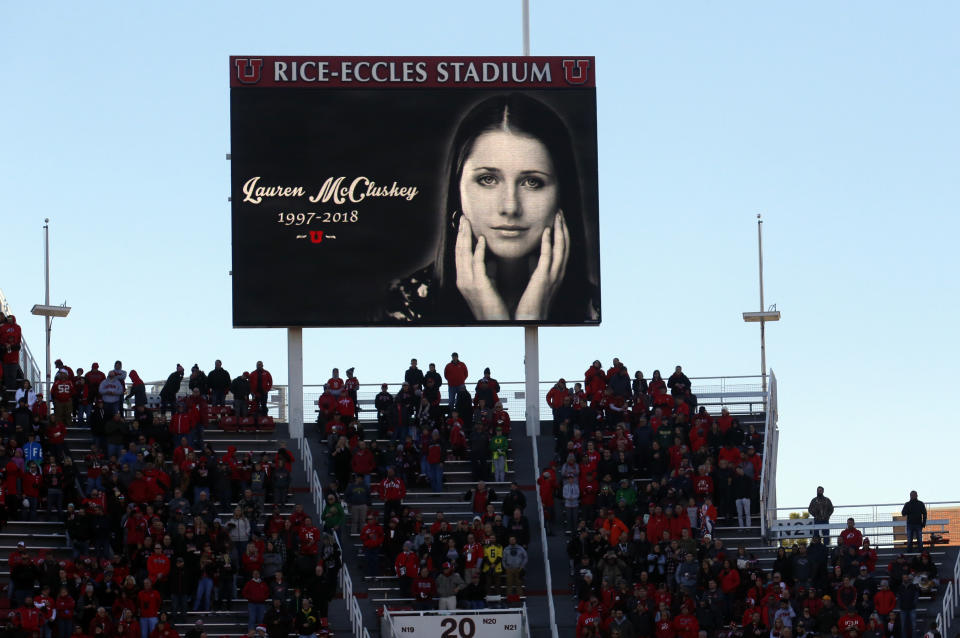Slain student's family says university failed to protect her
SALT LAKE CITY (AP) — The University of Utah missed multiple chances to prevent the death of a student shot by her ex-boyfriend on campus, and officials who failed to heed the warning signs should be held accountable, her family said Thursday.
University police and housing officials did not take Lauren McCluskey's case seriously enough and act on warnings that her ex-boyfriend was dangerous before he shot her to death on campus two months ago, her parents said.
Jill and Matthew McCluskey said they "respectfully disagree" with the institution's conclusion that her death could not have been prevented.
"This situation cries out for accountability beyond updating policies and training," Jill and Matthew McCluskey said in a statement.
It comes a day after an independent review found multiple missed warning signs before the shooting. The university said understaffing and lack of training was to blame, and it didn't discipline anyone.
University president Ruth Watkins pledged to act on the report's findings, but she said there's no reason to believe "master manipulator" Melvin Shawn Rowland, 37, could have been stopped.
The school stayed that course on Thursday, though officials said they had read the family's response and given it to the review team of top law-enforcement veterans.
Lauren McCluskey's parents said she could have been protected if officials had recognized and acted on signs that things were growing increasingly dangerous.
The reports began more than a month before her death, when her friends told housing officials that he was controlling and talking about guns. That report never made it to police because of bureaucratic snafus and concerns about overstepping into Lauren McCluskey's private life.
Ten days later, her mother called university police saying she was worried about her daughter's safety and requesting an officer accompany Lauren McCluskey as she got her car back from her ex-boyfriend.
On Oct. 12, the 21-year-old woman told police that Rowland's friends appeared to be trying to lure her off campus into a trap with fake texts. In the days that followed, she reported he was extorting her by threatening to post compromising photos of her online. He once left a message posing as a police officer in an apparent attempt to get her to leave her university apartment, but that report "went nowhere," a "unforgivable lapse of judgment and professional competency," her parents said.
She was told at one point there was little officers could do without a direct physical threat, and they didn't seem to realize it was an ongoing, escalating case, her parents wrote: "Each of the several times Lauren called the police, it was like the first time."
Police also did not run searches that could have told them he was a recent parolee.
The McCluskeys called on the university to make serious improvements to protect women in violent relationships as well discipline police and housing staff involved in her case.
The university, for its part, said police had taken the case seriously, and Watkins added the campus police chief has her full confidence.
She has pledged to hire more officers and increase training as well as streamline communications between housing officials and police.
Officers will also begin running more-frequent checks that identify ex-convicts, though state officials have said that might not have resulted in his arrest because he otherwise appeared to be obeying the conditions of his parole.



